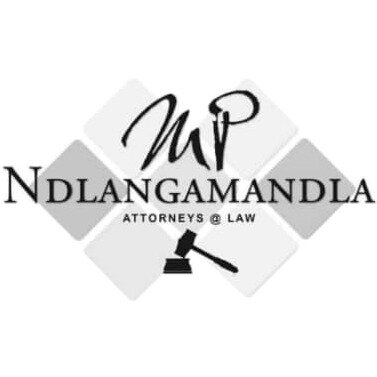Best ADR Mediation & Arbitration Lawyers in Eswatini
Share your needs with us, get contacted by law firms.
Free. Takes 2 min.
Or refine your search by selecting a city:
List of the best lawyers in Eswatini
About ADR Mediation & Arbitration Law in Eswatini
Alternative Dispute Resolution (ADR), which includes mediation and arbitration, is a significant part of the legal landscape in Eswatini. ADR offers individuals and businesses a means to resolve disputes without resorting to litigation. Mediation involves a neutral third party assisting the disputing parties to reach a mutual agreement, while arbitration involves an arbitrator making a binding decision. ADR is recognized for being cost-effective, less time-consuming, and more flexible than traditional court proceedings.
Why You May Need a Lawyer
Legal assistance in ADR may be necessary for several situations, including:
- When drafting arbitration agreements or clauses to ensure they are enforceable.
- If you are already involved in a mediation or arbitration process, a lawyer can provide guidance and representation.
- When disputes involve complex legal issues or substantial financial interests.
- If you want to challenge or enforce an arbitration award.
- When confidentiality and preserving business relationships are a priority.
Local Laws Overview
In Eswatini, the legal framework for ADR is influenced by both local statutes and international conventions. The key elements include:
- The Arbitration Act, which governs the arbitration process and ensures it aligns with internationally recognized standards.
- Laws ensuring that mediation agreements reached are binding and enforceable.
- The availability of institutional arbitration centers and private mediation experts who can facilitate ADR processes.
Frequently Asked Questions
1. What is the difference between mediation and arbitration?
Mediation involves a mediator who facilitates negotiation between parties to reach a voluntary settlement, while arbitration involves an arbitrator making a binding decision on the dispute.
2. Are arbitration decisions legally binding in Eswatini?
Yes, arbitration decisions are legally binding and enforceable under the Arbitration Act of Eswatini.
3. Can I choose my mediator or arbitrator?
Yes, parties typically have the flexibility to choose their mediator or arbitrator, often based on their expertise and neutrality.
4. What happens if mediation does not resolve the dispute?
If mediation is unsuccessful, parties may proceed to arbitration or litigation depending on any pre-agreed processes in their contract.
5. How long does the arbitration process take in Eswatini?
The arbitration timeline varies depending on the complexity of the case, but it usually resolves faster than traditional court proceedings.
6. Is legal representation necessary in ADR?
While not mandatory, having legal representation is advisable to protect your interests and navigate the complexities of ADR.
7. Can ADR decisions be appealed?
Arbitration awards can be challenged on limited grounds, such as procedural irregularities or violation of public policy, but generally, they are final.
8. What costs are involved in ADR?
Costs can include mediator/arbitrator fees, administrative fees, and legal representation. ADR is often less costly than litigation.
9. Is ADR confidential in Eswatini?
Yes, ADR processes are typically confidential, which helps preserve business relationships and proprietary information.
10. How do I initiate an ADR process?
ADR can be initiated by including a mediation or arbitration clause in contracts, or by mutual agreement of the parties to submit to ADR.
Additional Resources
For further assistance, the following resources may be useful:
- The Law Society of Eswatini: Offers directories of qualified lawyers specializing in ADR.
- Local arbitration institutions: Provide logistical support and resources for ADR processes.
- Governmental bodies: Such as the Ministry of Justice for legal frameworks and updates on ADR laws.
Next Steps
If you need legal assistance in ADR mediation and arbitration, consider the following steps:
- Consult the Law Society of Eswatini to find a lawyer with expertise in ADR.
- Ensure that any agreements related to ADR are drafted or reviewed by a qualified lawyer.
- Consider attending workshops or seminars on ADR to better understand the process and advantages.
- Engage with a local ADR institution to help facilitate the process.
Lawzana helps you find the best lawyers and law firms in Eswatini through a curated and pre-screened list of qualified legal professionals. Our platform offers rankings and detailed profiles of attorneys and law firms, allowing you to compare based on practice areas, including ADR Mediation & Arbitration , experience, and client feedback.
Each profile includes a description of the firm's areas of practice, client reviews, team members and partners, year of establishment, spoken languages, office locations, contact information, social media presence, and any published articles or resources. Most firms on our platform speak English and are experienced in both local and international legal matters.
Get a quote from top-rated law firms in Eswatini — quickly, securely, and without unnecessary hassle.
Disclaimer:
The information provided on this page is for general informational purposes only and does not constitute legal advice. While we strive to ensure the accuracy and relevance of the content, legal information may change over time, and interpretations of the law can vary. You should always consult with a qualified legal professional for advice specific to your situation.
We disclaim all liability for actions taken or not taken based on the content of this page. If you believe any information is incorrect or outdated, please contact us, and we will review and update it where appropriate.
Browse adr mediation & arbitration law firms by city in Eswatini
Refine your search by selecting a city.









